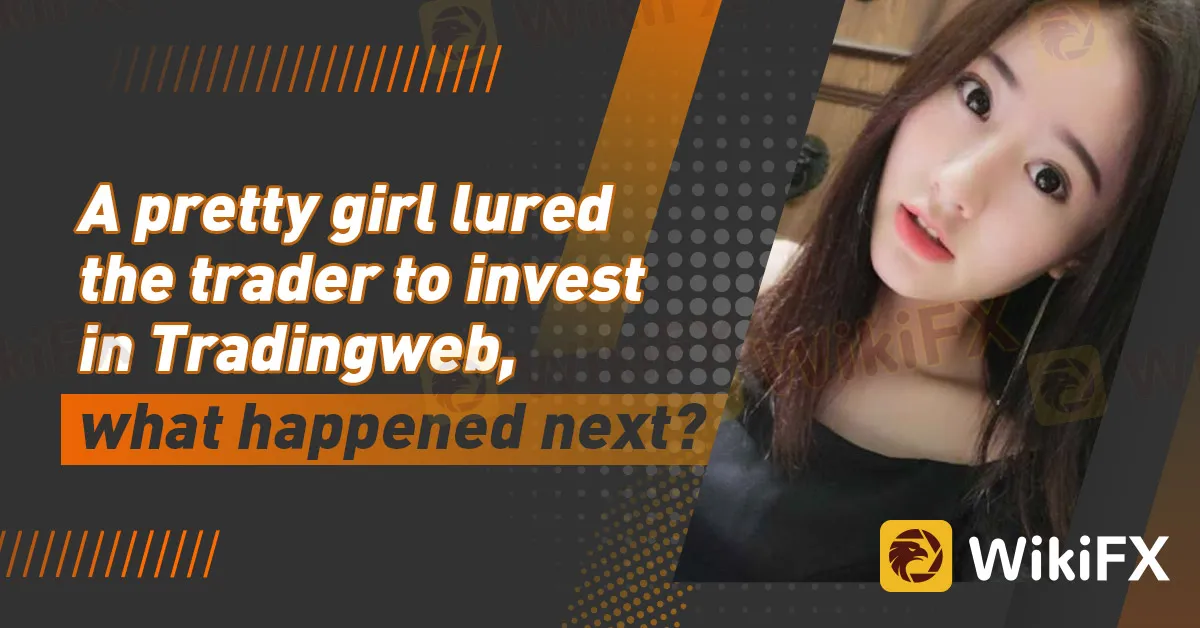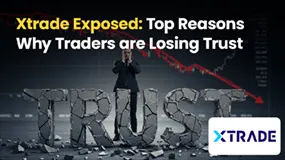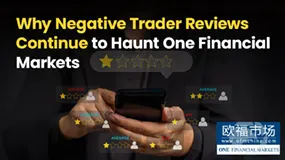A pretty girl lured the trader to invest in Tradingweb, what happened next?
Abstract:Tradingweb is a newly established online forex broker. Recently, one investor told WikiFX that this broker is a scam, taking his funds fraudulently. The reason why he invested in this broker started with a hot woman……In this article, we will expose how Tradingweb scammed the investor’s money based on the evidence gathered by WikiFX.

About WikiFX
WikiFX is an authoritative global inquiry platform providing basic information inquiry and regulatory license inquiry. It can evaluate the safety and reliability of more than 40,000 global forex brokers. WikiFX gives you a huge advantage while seeking the best forex brokers.
About Tradingweb
Registered in China, Tradingweb is an online forex broker offering a series of financial instruments. We can not go deep into this broker as its website lack a lot of fundamental information.

(Tradingweb)

Regulation
According to WikiFX, this broker is not regulated by any regulatory institution. And WikiFX has given this broker a low rating of 1.02/10. The risk of investing in this broker is fairly high.
Description of the case in brief
According to the trader, a lady named ‘Kelly’ approached the trader via SNS. Kelly introduced Tradingweb to the trader. And she told the victim that her uncle is working in trading for more than 30 years and explained to the victim how much profit did she get from his advice by investing in Tradingweb. At first, she encouraged the trader to try simulation mode. Later, The trader tried real-money trading in this broker and invested a lot of assets. But except for the first request, he could not withdraw any asset. Even worse, the customer service of Tradingweb asked him for the extra fee for unreasonable reasons. But even after the victim made the payment, they once again made another excuse to block the victim from withdrawal.
Girl so-called “Kelly”
We believe this woman is a shill of Tradingweb. She used the goodwill of others to trick investors into believing in her, thereby leading them into a trap. The victim told WikiFX that “Kelly” is in Hong Kong, but the brokers contact number belongs to the UK. This is a sign of a scam.



The girl named “Kelly”

The girl named “Kelly”

The girl named “Kelly”
Evidence gathered by WikiFX
After realizing being scammed, the trader immediately contacted WikiFX and asked for assistance. The trader claimed that he had deposited almost $62,000 in total with more than 15 activities including Tax requirements and other deposits required. But he could only withdraw $1,000 in the end. Therefore, this trader has more than $61,000 being taken away fraudulently by this broker. See below.



Conclusion
Apparently, “Kelly” was a decoy for Tradingweb which was using her to lure traders into investing. So, don't be fooled by online temptations. There may be complicated traps hidden beneath the beautiful appearance.
According to the evidence, we believe that Tradingweb is getting involved in scams. Protecting the legitimate rights and interests of forex traders are always the primary concern of WikiFX. The reason why WikiFX exposed this case to the public is to remind all traders of the potential risks. After all, what happened to this trader could happen to any of us. All traders should be vigilant when investing in a broker.
WikiFX is actively reaching out to the victim and other traders hoping to find more evidence to help him resolve the problem. Please stay tuned for more information.
WikiFX keeps track of developments, providing instant updates on individual traders and helping investors avoid unscrupulous brokers. If you want to know whether a broker is safe or not, be sure to open WikiFXs official website (https://www.WikiFX.com/en) or download the WikiFX APP through this link (https://www.wikifx.com/en/download.html) to evaluate the safety and reliability of this broker!

Read more

Xtrade Exposed: Top Reasons Why Traders are Losing Trust
Pending withdrawal requests at Xtrade giving you sleepless nights? Losing capital but being made to invest more for smooth withdrawal access? Not being informed of the investment risks by Xtrade? All these are clear warning signs that Xtrade may not be operating transparently. The growing number of trader complaints against the broker explains our suspicion. In this article, we will share several concerns faced by traders at Xtrade. Take a look!

Dutch financial regulator, AFM issued warning against Unlicensed Brokers
The Dutch Authority for the Financial Markets (AFM), the Netherlands' financial regulator, has issued a public warning against several unlicensed brokers and financial service providers. Checkout the list below.

Why Negative Trader Reviews Continue to Haunt One Financial Markets
Are you witnessing withdrawal denials at One Financial Markets? Does the broker also charge additional fees, such as an account upgrade fee? Is high spread always the case with One Financial Markets? Do you frequently encounter trading losses? These red flags strongly suggest that One Financial Markets may not be a trustworthy broker. In this article, we will share negative trader comments against the broker.

DeltaStock Flagged with Regulatory Concerns
Bulgarian broker DeltaStock faces regulatory concerns after license status questions surface, prompting investor caution and calls for verification.
WikiFX Broker
Latest News
ACY Securities Enters Colombia with LatAm Expansion
SEC Flags Five More Unregistered Crypto Platforms in PH
Webull Brings Crypto Trading Back to App
Pip Value Calculation Guide: How Much Is a Pip in Forex Really Worth?
Football Meets Finance: PSG Signs Global Partnership With WeTrade
Checkout List of 7 "FCA WARNED" Unauthorized Brokers
Why Are Investors Losing Trust in StoneX? What You Need to Know
Trader’s Way Exposed: Where Winning Trades Turn into Losses Overnight
Activity Upgraded! The 2025 WikiFX “Global Broker Review Contest” Grandly Launches!
Forex Lot Size Explained: A Complete Guide to Standard, Mini, & Micro Lots
Rate Calc


